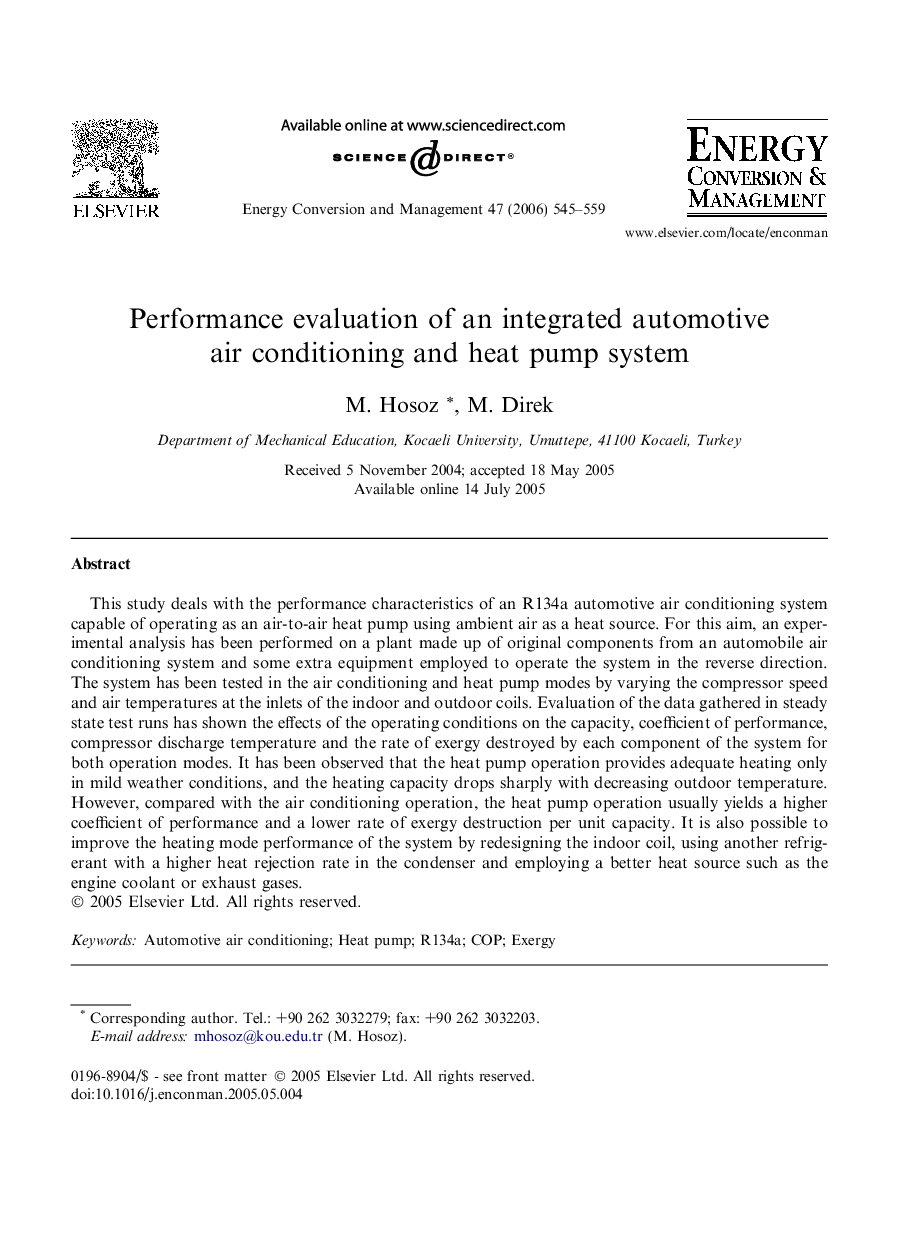| Article ID | Journal | Published Year | Pages | File Type |
|---|---|---|---|---|
| 762480 | Energy Conversion and Management | 2006 | 15 Pages |
This study deals with the performance characteristics of an R134a automotive air conditioning system capable of operating as an air-to-air heat pump using ambient air as a heat source. For this aim, an experimental analysis has been performed on a plant made up of original components from an automobile air conditioning system and some extra equipment employed to operate the system in the reverse direction. The system has been tested in the air conditioning and heat pump modes by varying the compressor speed and air temperatures at the inlets of the indoor and outdoor coils. Evaluation of the data gathered in steady state test runs has shown the effects of the operating conditions on the capacity, coefficient of performance, compressor discharge temperature and the rate of exergy destroyed by each component of the system for both operation modes. It has been observed that the heat pump operation provides adequate heating only in mild weather conditions, and the heating capacity drops sharply with decreasing outdoor temperature. However, compared with the air conditioning operation, the heat pump operation usually yields a higher coefficient of performance and a lower rate of exergy destruction per unit capacity. It is also possible to improve the heating mode performance of the system by redesigning the indoor coil, using another refrigerant with a higher heat rejection rate in the condenser and employing a better heat source such as the engine coolant or exhaust gases.
